VERSION EN ESPAÑOL
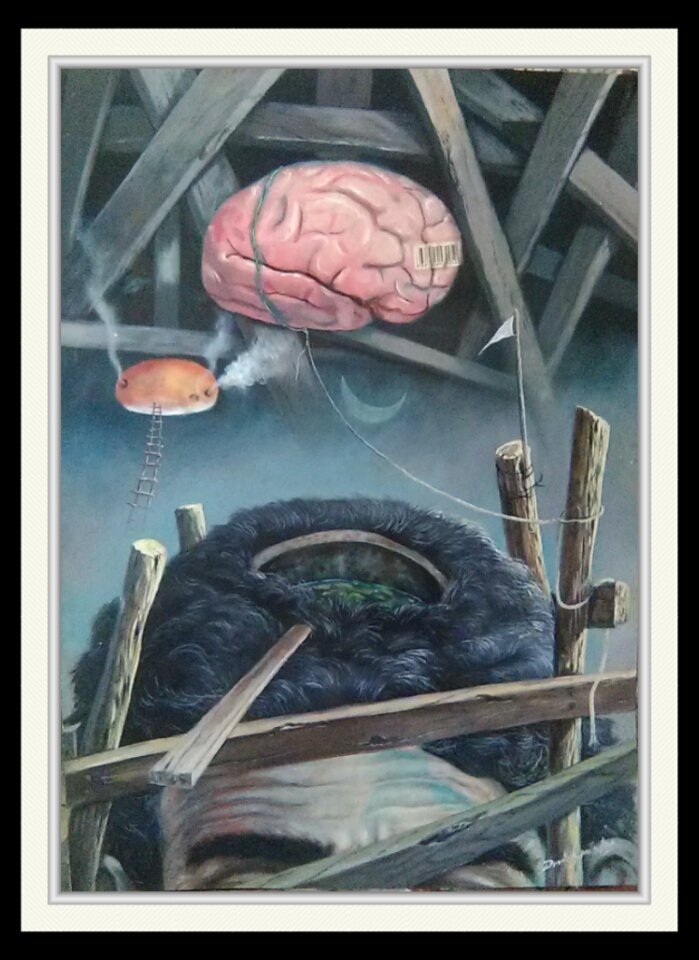
Hola a todos por acá!
Todavía conservo en una de mis carpetas de trabajos terminados, una obra que pinté hace unos cuantos años. Y realmente yo mismo no puedo definir la fecha exacta, pues para mí los dos momentos más difíciles en la ejecución de una obra son el loprincipio y el final, pero sobretodo el final cuando tengo que firmar y cerrar el ciclo.
Recientemente, en una de las poquisimas veces que me siento a ver la televisión correspondía el turno al programa " vale la pena" conducido desde hace bastante tipo por el profesor y psicólogo, Calviño.
En esta ocación abordaba el tema del estrés, y rápidamente sentí una conección casi directa entre lo que el especialista decía y mi cuadro.
EL ESTRES ES TRES!
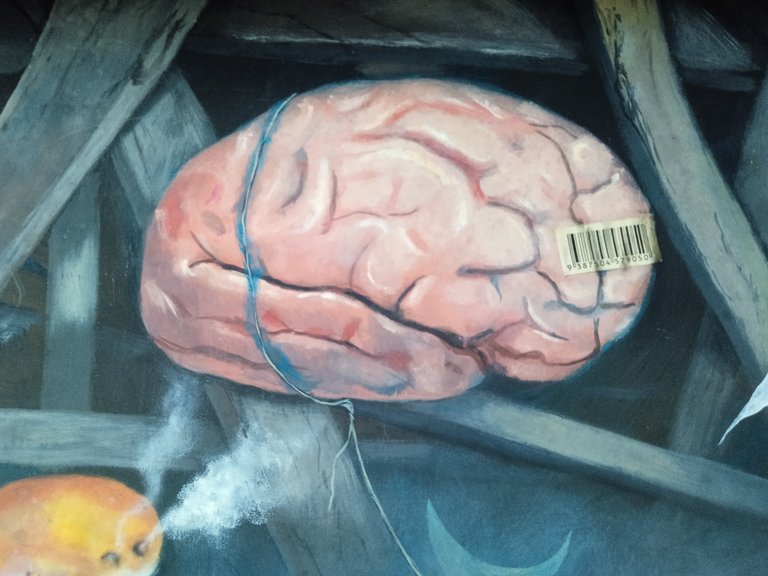
Desde siempre ese fue uno de los programas de mi preferencia, pues notaba mucha sabiduría y coherencia en los temas tratados, además de la forma peculiar y carismática con que el especialista atrapa al interlocutor, en este caso al televidente.
El discurso fresco, fluido y seguro, acompañado de ademanes y gesticulaciones muy personales me atrapaba por lo abil paraengarzar e
El Galeno sabe que del otro lado del vidrio hay un público generalizado con las mismas situaciones existenciales, la misma cotidianidad, y los mismos síntomas psicológicos a los que desde un guión bien pensado es fácil abordar y supuestamente dar tratamiento.
Para mí ese siempre fue un gran programa, hasta que paulatinamente, en el encuentro con una serie de nuevos_y otros no tan nuevos_puntos de vista de la psicología, tanto orientalista, como de occidente, fui perfilando y cambiando el desde dónde recepcionaba esos conocimientos.
En el programa de referencia de esa noche, Calviño destacaba tres factores siempre presentes en el fenómeno del estrés, y da como buena solución para mitigar ese estado subjetivo, la eliminación de por lo menos dos y con el otro emprender la batalla campal, a sabiendas de que se convertirá en una larga contienda sin fecha de un fin posible.
En este sentido pone por un lado al entorno con todos sus componentes como generador de estrés. Por otra parte al "otro"que ya está estresado y llega con su carga estresante, y al final sujeto (yo) como creador de estrés.
Y tal parece que si. Que porque lo dijo Calviño con su pegajoso discurso y con su carisma fascinador, es totalmente cierto.
DIFUMINA LA REALIDAD!
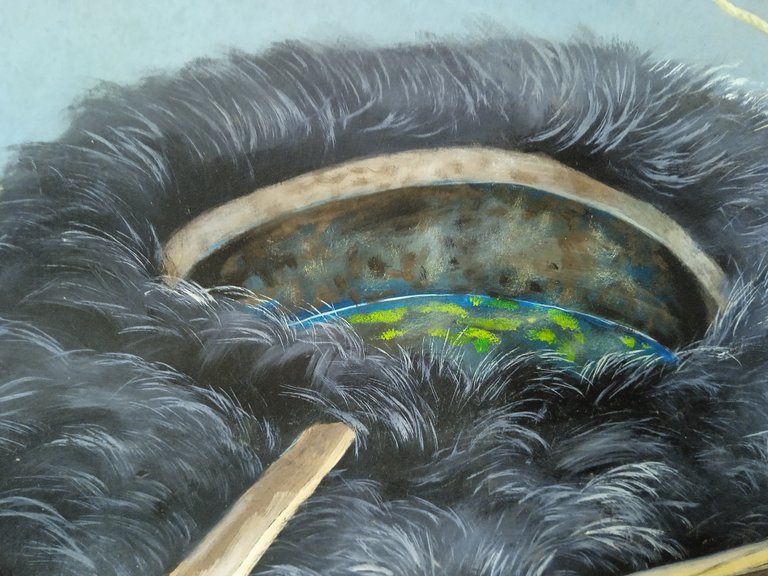
El doctor en su análisis, tacha al medio y al "otro", y deja la cuestión en el sujeto. el "Yo" generador del estrés.
Y ofrece como solución, el desenfoque sobre las cuestiones de afuera y sobre el "otro", que para él, está afuera, ignorando que también está dentro.
Y después repetimos con él : créame que vale la pena!
Volviendo a mi cuadro que se titula: Reparación capital. En él abordo el asunto pictóricamente como un cambio de mente al fenómeno. Pero no solo sustituir una mente por la otra, sino, cambiar los "desde dónde" tomar la cuestión del deterioro del
autocontrol y el equilibrio emocional en el día a día.
Y por ejemplo, todos sabemos que en las sociedades modernas, más que en otras, el factor que más incidencia tiene en la producción masiva e individual del estrés, es el tiempo, sobre todo en su magnitud " futuro"
No tener tiempo es la mayor de las pobrezas, así que podemos contar con los dedos de las manos_y nos sobran dedos_ los verdaderos ricos del planeta tierra.
Desenfocar funciona, hasta que funciona. Lograr que no te afecte eso que desenfocar, es otra cuestión, porque realmente ya no tendrías que hacer como que no vez el problema porque ya está disuelto.
El primer síntoma del estrés es el establecer combate hacia afuera,contra todo. Contra el clima( sea la época del año que sea), los apagones. El gobierno, sea el gobierno que sea. El sistema, las instituciones, el vecino, el hermano, etc.
Recientemente entre a la bodega donde hago las compras de la canasta básica y la bodeguera, una mujer relativamente joven, le mostraba a una cliente unas manchas y llagas en los brazos, el cuello y la cara, y supongo que en otros lugares, mientras decia que se había untado no se sabe cuántos antibióticos y apelado a no se cuántos remedios.cientificos y caceros, y nada.
Ella, ya en su mente cerrada estaba pidiendo incluso que le hicieran una biopsia para saber una verdad , cualquier verdad.
UN PEQUEÑO CONSEJO Y EL "YO"RECITENTE
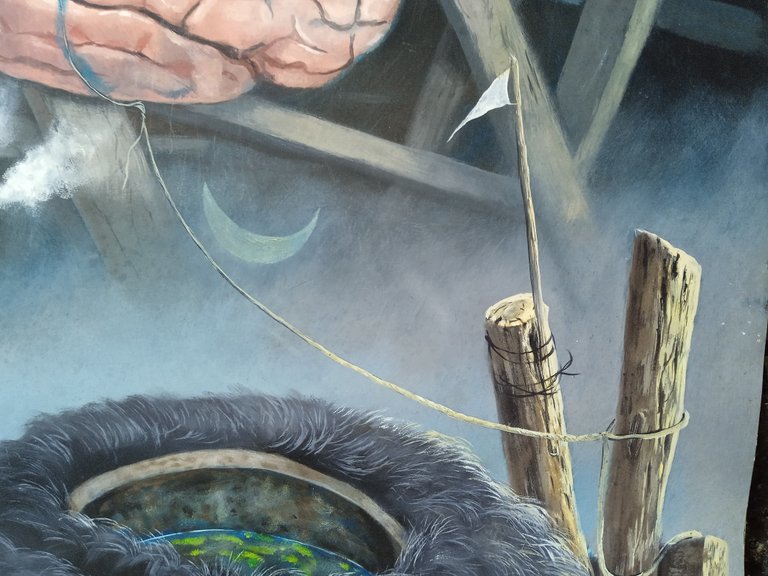
Yo le dije :eso es estrés. Y su respuesta fue instantánea y resitente: no hijo no, si yo no cojo lucha! Y recordé que lo primero que te dice un borracho, es que no lo está.
Yo le puse un par de ejemplos sobre porqué si, y que su malestar estaba asociado a un pensamiento erróneo.
Cedió un poco en su resistencia a reconocer su realidad, y mi único consejo fue :búscate un papel y un, lápiz y haz un balance de todo por lo que estás o puedes estar preocupada y verás que cuando _ aunque no te des cuenta _pases por el pensamiento que te genera el estrés, todo empieza a cambiar.
Y sobre todo_ le dije _ busca en las preocupaciones más vinculadas al futuro, que es allí donde se refugian todos tus problemas. Porque el pasado tiene el poder de denuncia y acusación por lo que hiciste o no hiciste. Pero el futuro es una promesa y un lugar de muchas metas, las mayoría absurdas e innecesarias en tu paso por la vida.
Para la mayoría, el presente es solos un lugar desde donde mirar para atrás y para alante. Para esos el.presente no existe.Y la gran tarea es hacer que exista y reconocer que es la única magnitud real del tiempo, y es donde único pueden suceder las cosas.
Si el estado de estrés es producto de las ideas y las pensamientos, es fácil reconocer que el mundo es mental con pensamientos que se han densificado!
SOLO PRESENTE, SOLO PRESENTE

Reconocimiento es liberación.
Reconocer un estado de extrema ansiedad, de obsesivas preocupaciones por lo que no se tiene ,por las carencias, y sobre todo, el no anclaje de transitoria existencia en la dimensión presente del tiempo, es tener a mano una eficaz herramienta para liberarse concientemente de los efectos destructores del estrés
Y créame que : no vale la pena(pero este es otro tópico) y nunca lo valdrá, porque nada que se haga para crecer, avanzar o elevar nuestro nivel de vida, puede tener como recompensa ese sentimiento limitante.
Más bien vale el éxito, vale el reconocimiento, y el estímulo a seguir construyendo cada vez con menos esfuerzo, la vida que queremos. Pero aquí y ahora!
Un programa de televisión y un cuadro hablan casi de lo mismo. Uno orienta y tiene el poder mediático de llegar instantáneamente a millones de receptores, mientras que al otro hay que visitarlo o d descubrirlo en una galería o en el taller del artista, y hay que descodificarlo, pero en el fondo dicen cosas diferentes para las soluciones.
"Vale la pena" y "Reparación capital"; divergen en en "EL DESDE DONDE"
Desde aquí, y hasta donde esté, llegué mis saludos.
VERSION IN ENGLISH
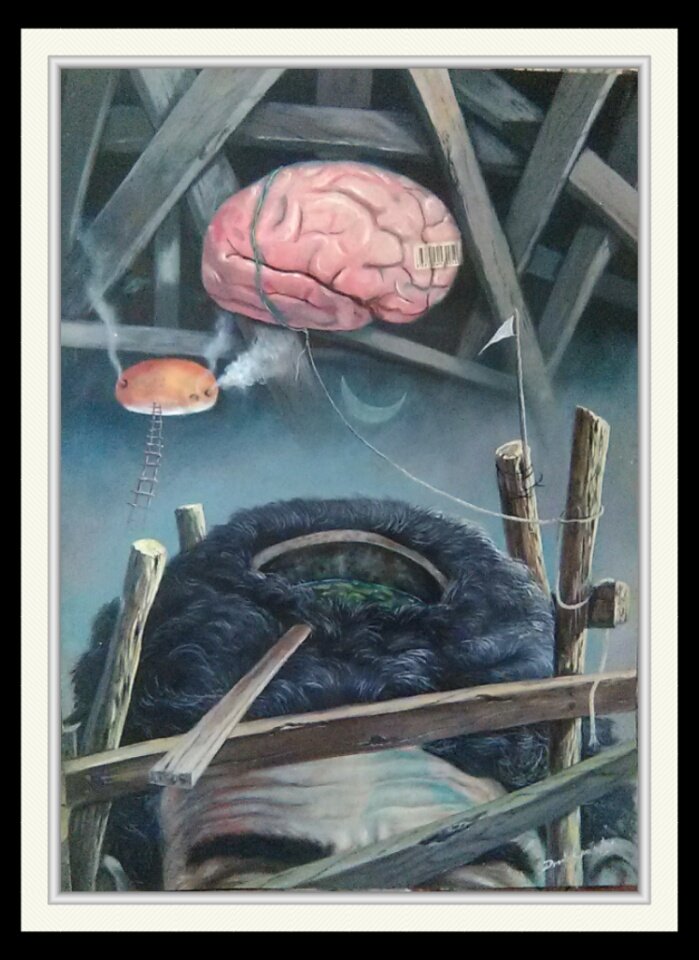
Hello to everyone here!
I still have in one of my folders of finished works, a work that I painted a few years ago. And I myself can't really define the exact date, because for me the two most difficult moments in the execution of a work are the beginning and the end, but above all the end when I have to sign and close the cycle.
Recently, in one of the few times that I sit down to watch television, it was the turn of the programme "vale la pena", hosted for quite some time now by the professor and psychologist, Calviño.
This time he was dealing with the subject of stress, and I quickly felt an almost direct connection between what the specialist was saying and my condition.
STRESS IS THREE!
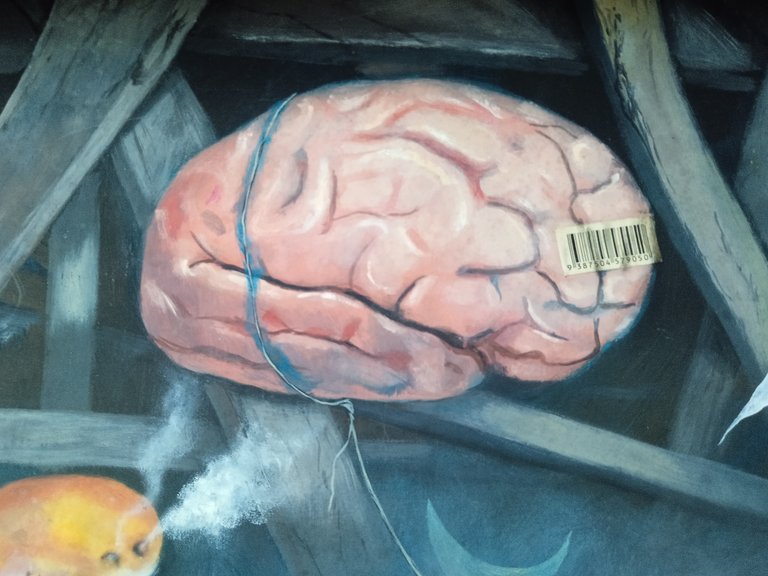
This has always been one of my favourite programmes, as I noticed a lot of wisdom and coherence in the topics covered, as well as the peculiar and charismatic way in which the specialist captures the interlocutor, in this case the viewer.
The fresh, fluid and confident discourse, accompanied by very personal gestures and gesticulations, captivated me because of the abilengarzar and the way in which the specialist captures the interlocutor, in this case the viewer.
El Galeno knows that on the other side of the glass there is a general public with the same existential situations, the same everyday life, and the same psychological symptoms that are easy to address and supposedly treat with a well thought-out script.
For me this was always a great programme, until gradually, in the encounter with a series of new_and not so new_points of view of psychology, both orientalist and western, I began to outline and change the point of view from which I received this knowledge.
In that night's programme, Calviño highlighted three factors that are always present in the phenomenon of stress, and he gives as a good solution to mitigate this subjective state, the elimination of at least two of them and with the other one to start a pitched battle, knowing that it will become a long battle with no possible end date.
In this sense, on the one hand, the environment with all its components as a generator of stress. On the other hand the "other" who is already stressed and arrives with his stressful load, and finally the subject (me) as the stress creator.
And so it seems. That because Calviño said it with his catchy speech and his fascinating charisma, it is totally true.
Bb IT BLURS REALITY!
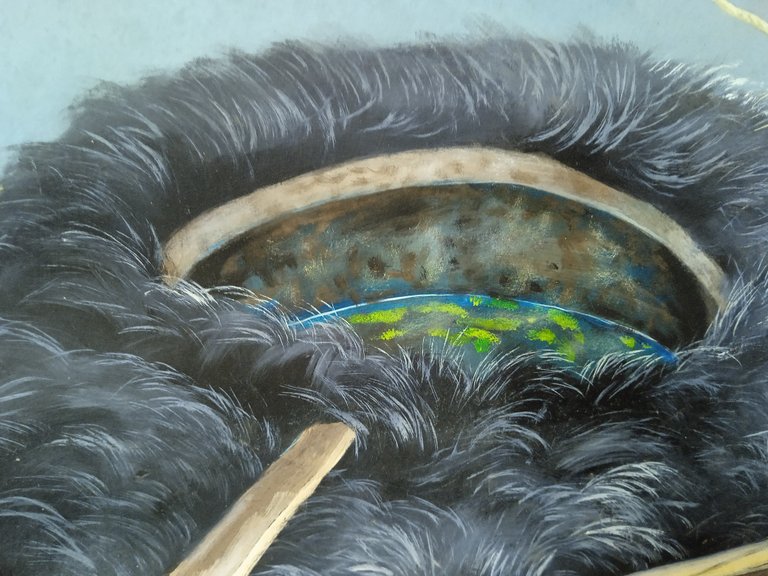
The doctor, in his analysis, crosses out the environment and the "other", and leaves the question to the subject, the stress-creating "I".
And he offers as a solution, the blurring of the focus on the issues outside and on the "other", which for him, is outside, ignoring that it is also inside.
And then we repeat with him: believe me it's worth it!
Back to my painting entitled: Capital Repair. In it I approach the subject pictorially as a change of mind to the phenomenon. But not only replacing one mind with the other, but, changing the "from where" to take the question of the deterioration of self-control and emotional balance in
emotional balance and self-control in everyday life.
And for example, we all know that in modern societies, more than in others, the factor that has the greatest incidence in the massive and individual production of stress is time, especially in its "future" magnitude.
Not having time is the greatest poverty, so we can count on the fingers of our hands - and we have more than enough fingers - the real rich people on planet earth.
Defocusing works, until it works. Getting you to be unaffected by what you defocus is another matter, because you don't really have to pretend you don't see the problem because it's already dissolved.
The first symptom of stress is to fight outwards, against everything. Against the weather (whatever time of year it is), blackouts. The government, whatever government it is. The system, the institutions, the neighbour, the brother, etc.
Recently I went into the bodega where I shop for the basic food basket and the bodeguera, a relatively young woman, was showing a customer some spots and sores on her arms, neck and face, and I suppose in other places, while saying that she had smeared herself with I don't know how many antibiotics and appealed to I don't know how many scientific and hunting remedies, and nothing.
She, in her closed mind, was even asking for a biopsy to find out the truth, any truth.
A LITTLE ADVICE AND THE RECITING "I".
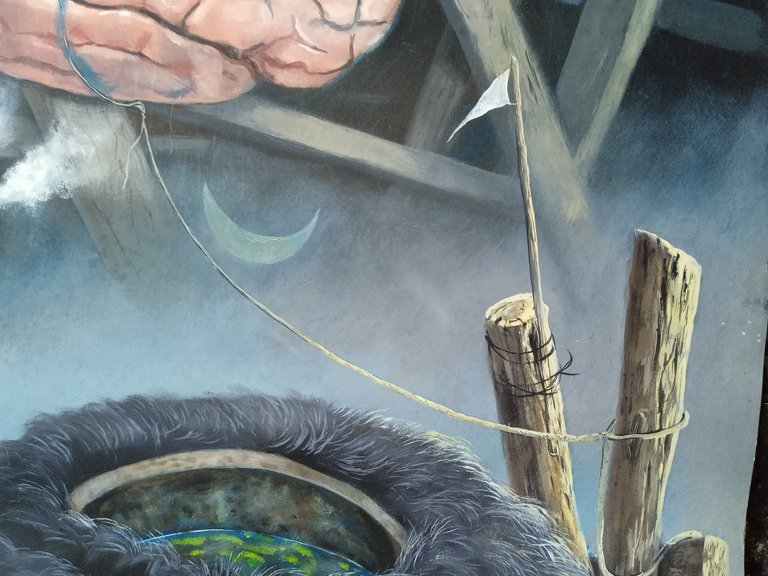
I told him: that's stress. And his response was instantaneous and resitant: no, son, not if I don't fight! And I remembered that the first thing a drunk tells you is that he is not drunk.
I gave him a couple of examples as to why he was, and that his discomfort was associated with wrong thinking.
He relented a little in his resistance to acknowledge his reality, and my only advice was: get a pencil and paper and take stock of everything you are or may be worried about and you will see that when _ even if you don't realise it _ you go through the thought that generates the stress, everything starts to change.
And above all," I told him, "look into the worries that are more linked to the future, which is where all your problems take refuge. Because the past has the power to denounce and accuse you for what you did or didn't do. But the future is a promise and a place of many goals, most of them absurd and unnecessary in your passage through life.
For most people, the present is just a place to look back and look forward. And the great task is to make it exist and recognise that it is the only real magnitude of time, and the only place where things can happen.
If the state of stress is a product of ideas and thoughts, it is easy to recognise that the world is mental with thoughts that have become densified!
ONLY PRESENT, ONLY PRESENT

Recognition is liberation.
To recognise a state of extreme anxiety, of obsessive worries about what we don't have, about our shortcomings, and above all, the non-anchoring of our transitory existence in the present dimension of time, is to have at hand an effective tool to consciously free ourselves from the destructive effects of stress.
And believe me: it is not worth it (but this is another topic) and it will never be worth it, because nothing that is done to grow, advance or raise our standard of living, can be rewarded with this limiting feeling.
It is worth the success, the recognition, and the stimulus to continue building, with less and less effort, the life we want. But here and now!
A television programme and a painting talk about almost the same thing. One orients and has the media power to reach millions of recipients instantly, while the other has to be visited or discovered in a gallery or in the artist's studio, and has to be decoded, but in the end they say different things for the solutions
It's worth it" and "Capital Reparation"; they diverge in "THE FROM WHERE".
From here, and as far as you are, I send my greetings.
Texto traducido con Deelpp Traslator.
Fotos tomadas con mi Redmi9a.
Text translated with Deelpp Translator.
Photos taken with my Redmi9a.
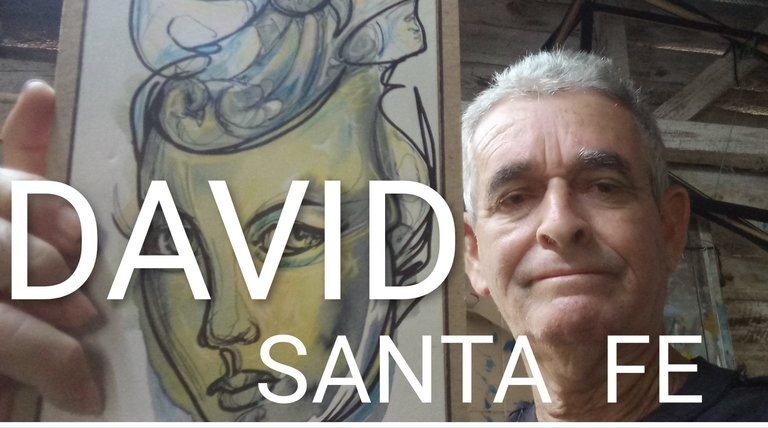
Ayer me sucedió algo curioso que me hizo reparar precisamente en el tema que toca,y me pude dar cuenta que estaba generando un conflicto en mi mente por un futuro que no habia sucedido.
Y caí en la cuenta de que me estaba estresando por nada, y que la solución real la tenia a la mano.
Entonces si, vivir en el futuro hace daño.
Muy buena reflexion, ojala y le sirva a otros.
Saludos!
Pienso que precisamente esta comunidad es la idónea,para además de mostrar buena literatura , y recibir elevados conocimientos dónde " el Yo" recibe sus mejores golosinas ayudar a que la gente entre en auto valoración y cuestan no en conocimientos, sino en sabiduría , y que sus saberes de llenen de utilidad.
Lo importante no es el tiempo que se viva. Lo importante es la calidad de vida wue se alcance en ese diario esfuerzo que es vivir . Respirar, comer , dormir, caminar eso lo hace todo el mundo y para eso no tiene que intervenir la conciencia .( Eso es vivir) pero la meta real es EXISTIR, O sea, fundar el ser desde la propia conciencia.
Gracias por volver sobre el post .
Saludos.Gracias @jordy. Gracias por revisutar este post.
Siempre o casi siempre pensamos que en el futuro es cuando obtendremos un objeto u objetivo de felicidad deseado, y solemos olvidar que si no trabajamos de forma equilibrada en este presente no habrá futuro.
La velocidad de la vida que vivimos es demasiado rápida y densa para los que vivimos en esta parte del mundo,el estrés es a veces inevitable, pero tenemos que evitar que nos haga daño como seres humanos, ¿cómo hacer eso? Realmente hay quien tiene más capacidad para manejarlo que otros, y Calviño siempre nos podrá regalar buenos consejos pero al final solo dependerá de uno mismo.
Excelente su reflexión, vale la pena leerle.
We always or almost always think that in the future is when we will obtain a desired object or goal of happiness, and we tend to forget that if we do not work in a balanced way in this present there will be no future.
The speed of the life we live is too fast and too dense for those of us who live in this part of the world, stress is sometimes unavoidable, but we have to prevent it from hurting us as human beings, how can we do that? There really are those who have more capacity to handle it than others, and Calviño can always give us good advice but in the end it will only depend on oneself.
Excellent reflection, well worth reading.